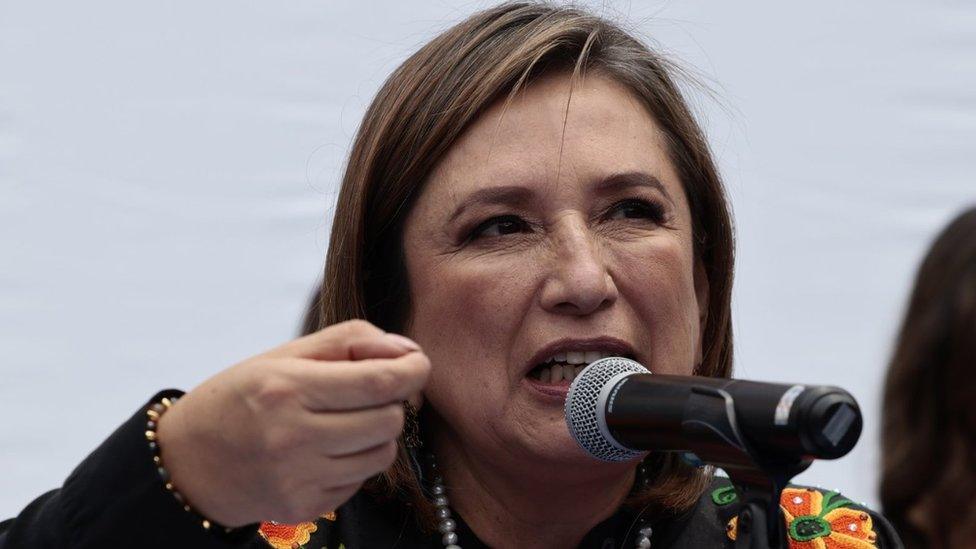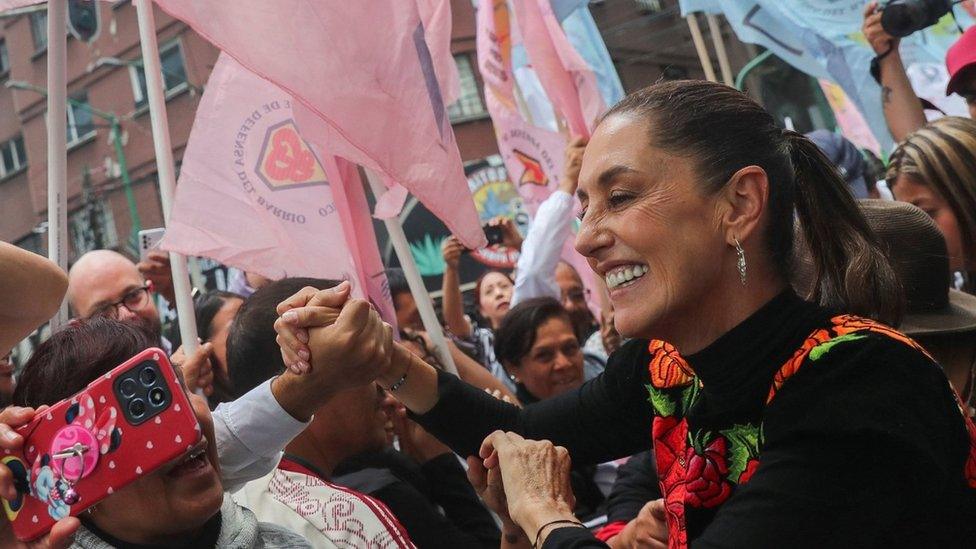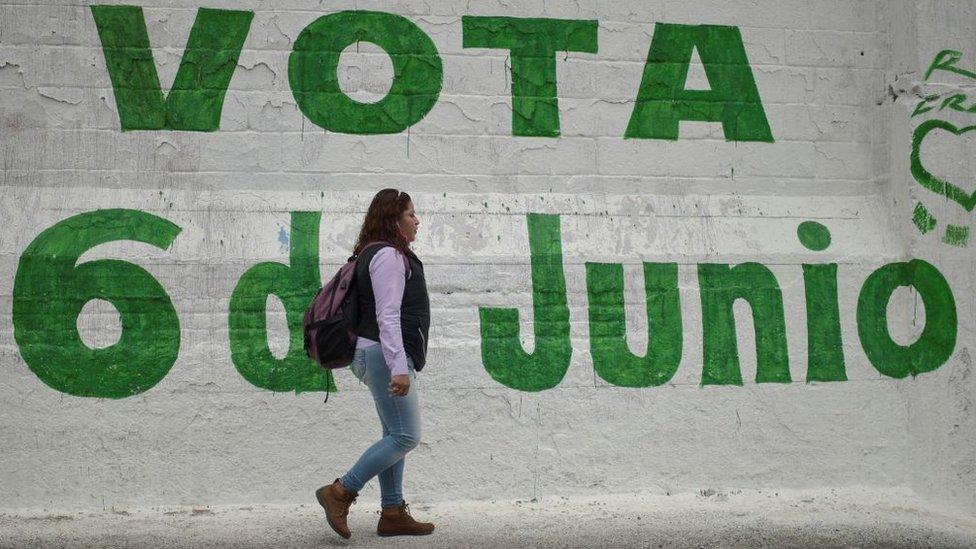Xóchitl Gálvez: Mexican opposition pick female election candidate
- Published

Xóchitl Gálvez is often seen cycling around Mexico City
Mexico's opposition coalition has named an outspoken female senator with indigenous roots as their candidate for the 2024 presidential election.
Xóchitl Gálvez is a 60-year-old computer engineer and businesswoman.
Her nomination raises the prospect of Mexico having a female president for the first time.
Former Mexico City mayor Claudia Sheinbaum is considered the frontrunner for leftist President Andrés Manuel López Obrador's Morena party.
Ms Gálvez is backed by a three-party coalition including the Institutional Revolutionary Party (PRI), which dominated the country's politics until 2000.
Growing up poor as a child, she helped her family sell street food in the central state of Hidalgo.
Her father - an indigenous Otomi schoolteacher - was an abusive alcoholic, Ms Gálvez says, according to the Associated Press., external
She moved to Mexico City, receiving a scholarship to study computer science. Upon graduation she launched a lucrative tech company that went on to secure government contracts.
Ms Gálvez wears indigenous clothing, uses colloquial language and is often seen cycling around Mexico City. She is seen as having a quick wit and down-to-earth demeanour that proves popular with many working class and young Mexicans.
However, she faces a tough task going up against the party of President López Obrador, who enjoys an approval rating of more than 60% but cannot stand next year because he is serving a maximum six-year term.
Ms Gálvez has repeatedly clashed with the president over issues including the high levels of violence in Mexico, stating that "ovaries are needed" to confront organised crime. He has accused her of being the candidate of the rich, the "oligarchs" and "conservatives".
An all-female face-off between Ms Gálvez and Ms Sheinbaum, a 61-year-old trained scientist, is looking increasingly likely. Ms Sheinbaum's main internal rival is former Foreign Minister Marcelo Ebrard.
Ms Gálvez says she is not fazed by either of her potential rivals. "They're there because they want to continue doing the same as the president," she told AP. "They don't have their own identity."
Mexicans are due to pick their new president in June.

Claudia Sheinbaum is considered the frontrunner for President Andrés Manuel López Obrador's Morena party
Related topics
- Published5 June 2021
